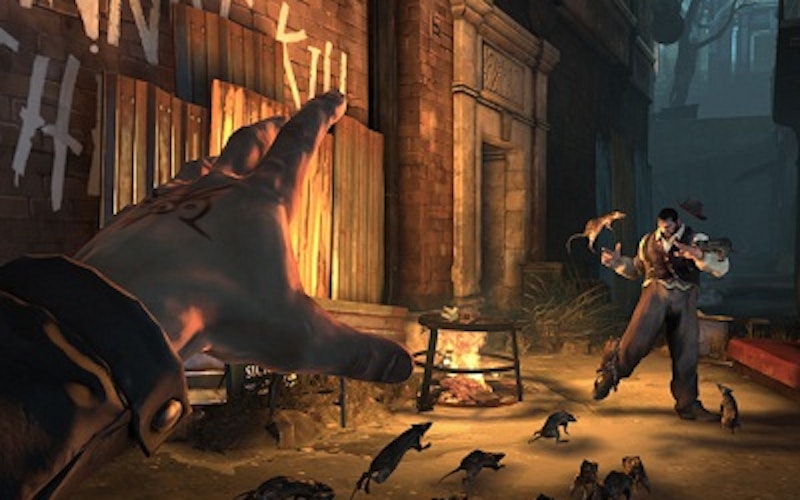
Games
Freedom and consequence in Dishonored
Our lives are made up of actions and consequences. At least that is what we are told. Sometimes, however, it seems that our actions go unnoticed or there seem to be little to no consequences for them. This confirms something we know but don’t like to acknowledge: the world is broken.
This lack of consequence simultaneously drives people to and away from God. It drives people to God because we want to believe in justice. If justice will not be done in this life, then we can only hope for it in eternity. It drives others away from God because they struggle to believe in a God who would allow so much injustice this side of eternity.
Perhaps this is why video games are so popular: they are action/consequence simulations that are committed to justice.
My actions in Dishonored shape its game world. I know this because the game keeps telling me that this is true. The more destructive I am, the “darker” the world will be.
This lack of consequence simultaneously drives people to and away from God.
Dishonored is a stealth action game in which you play as Corvo Attano, former body guard to the Empress, who is wrongly accused of her murder. The game is set in a plague-ridden, steam-punk version of London known as Dunwall. After being rescued from prison by a group of loyalists, Corvo joins them in their quest for revenge on those who betrayed the Empress and kidnapped her daughter.
Like many action game protagonists, Corvo remains silent. This is the most frustrating aspect of the game because I wanted to investigate the loyalists. I often wondered whether these covert missions I was leading Corvo through were really making Dunwall a better place. There was no doubt in my mind that those who betrayed the Empress were corrupt and deserved to pay for their crimes, but I often found myself wondering whether Corvo was merely a puppet of even more malevolent forces.
As Corvo progresses through the game's various missions, he is guided by a mysterious spiritual figure called "The Outsider." The Outsider informs Corvo of the sinful actions of his targets and how they refused to listen to his counsel and follow his ways. Corvo learns new magical abilities from The Outsider - how to to teleport to previously unreachable locations, see through walls, turn his enemies’ dead bodies into ash, stop time and possess various enemies and animals. Corvo never questions the merits of the loyalists and their mission, nor does he question the guiding hand of The Outsider. The only arena in which Corvo is truly free is in which abilities the player chooses for him to learn from The Outsider and how he utilizes those abilities. This is also where Corvo’s story gets interesting and becomes something that belongs uniquely to the player.
When I played, I refused to kill anyone. I stuck to the shadows, avoiding enemies when possible and taking them out with sleeping darts when I had to. My Corvo didn’t trust anyone. He did what the loyalists asked him to do and followed the guidance of The Outsider, but he accomplished missions his way and did what he thought was right. The few tools that Corvo has at his disposal allow for Dishonored to be played in some truly creative ways.
There is little hope in Dunwall. Its political leaders are selfish and cruel and its citizens remain ravaged by the plague. These realities encouraged me not only to play nonviolently, but to continue to search out ways to try and make Dunwall a better place. The violent or nonviolent binary of Dishonored may seem a relatively meaningless system in the context of a “game,” but being able to see my violent actions causing the world to visibly unravel is a convenience the real world rarely offers me. In reality, such consequences will only be fully seen in eternity. In that sense, Dishonored is one of the most helpful games I have played all year.
Topics: Games, Culture At Large, Arts & Leisure